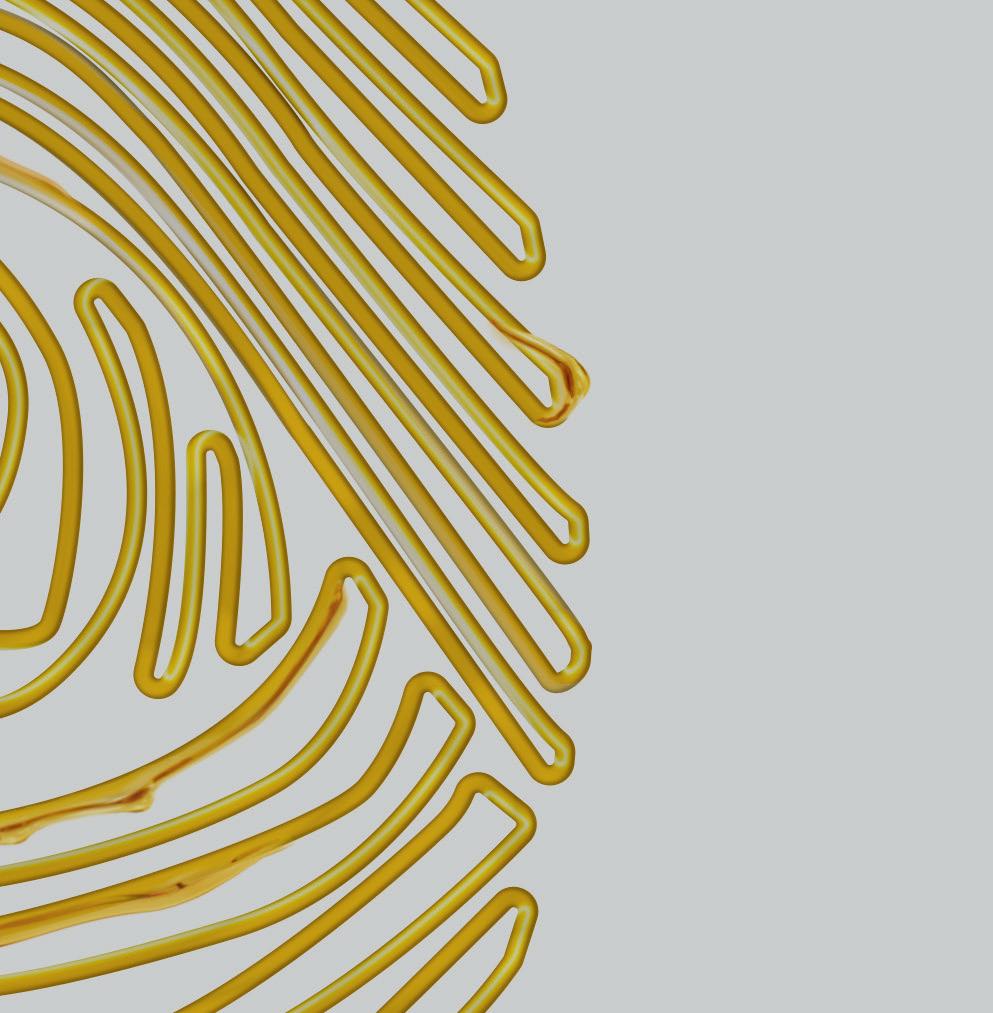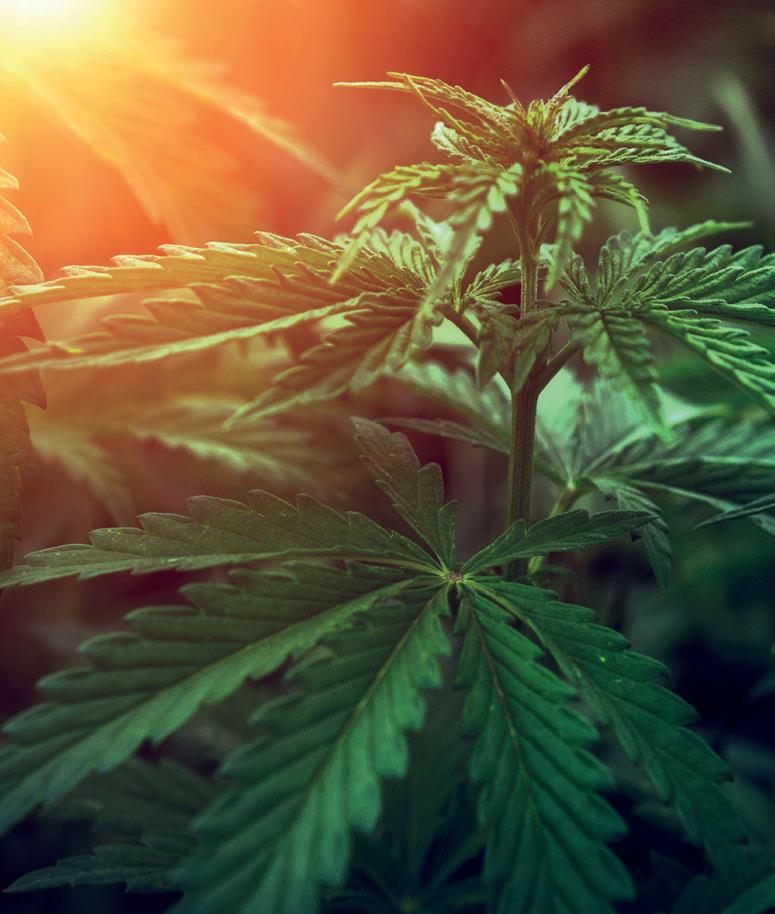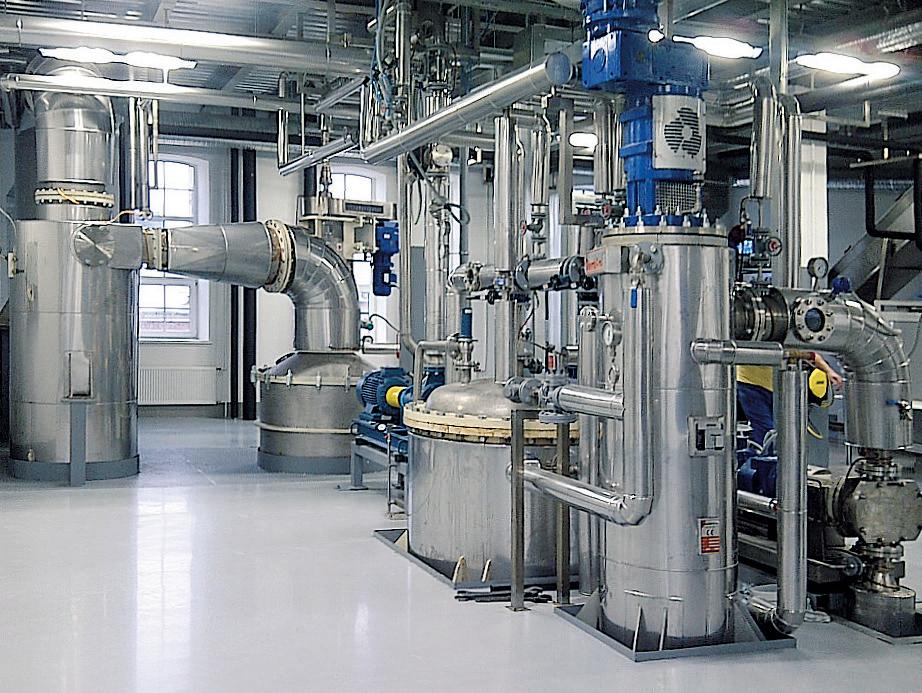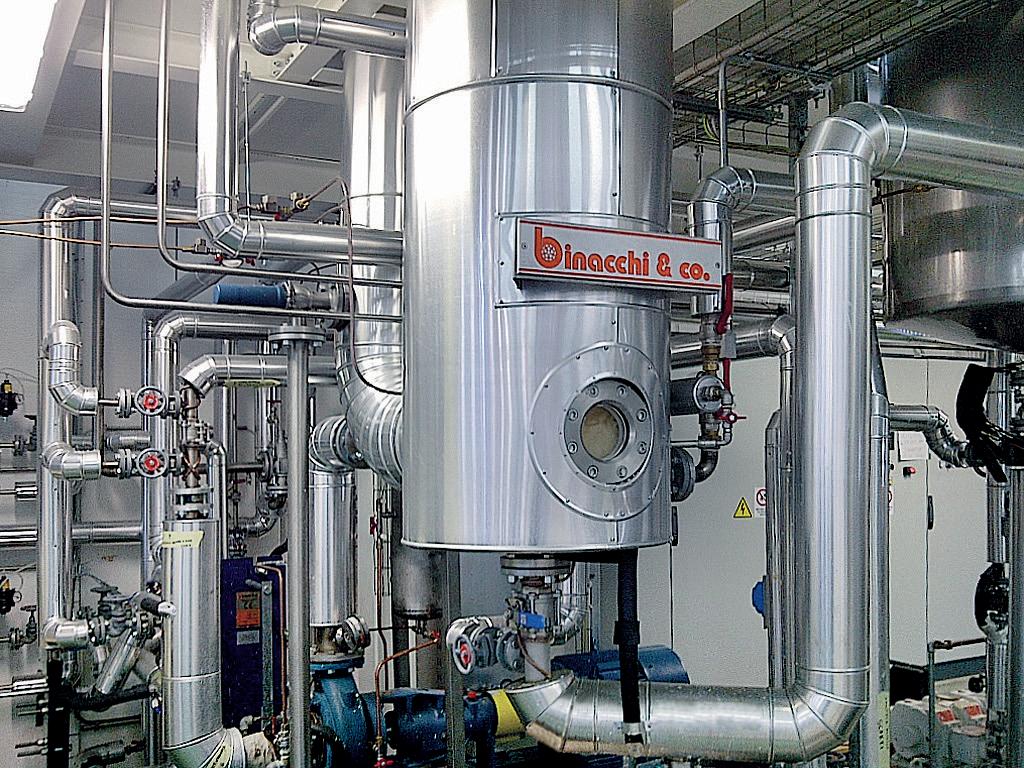
14 minute read
Coronavirus leads to price falls
NEWS Coronavirus leads to price falls
World food prices fell in February for the first time in fourth months due to a sharp fall in the export prices of vegetable oils partly driven by fears that the novel coronavirus (Covid-19) would slow global demand, the Food and Agriculture Organization (FAO) of the United Nations said on 5 March.
The FAO vegetable oil index declined 10.3% from January, with international palm oil prices falling by even more on account of higher-than-expected output in Malaysia, a temporary drop in India's import demand and concerns over the spread of Covid-19. Bloomberg reported on 28 February that palm oil futures posted their steepest weekly drop (11.6%) since the global financial crisis in October 2008. It quoted Sime Darby Plantation as saying that demand from China had virtually "dried up" while Golden Agri-Resources said sales to China could slide by up to 20% due to weaker demand in the food sector.
Malaysian palm oil futures jumped due to concerns that plantations had to shut for two weeks to comply with government orders to curb the spread of Covid-19, S&P Global Platts reported on 18 March. However, they fell again when the government confirmed that the industry could continue operations.
There had been fears that the industry could face a potential loss in crude palm oil supply of around 708,500 tonnes and that fresh fruit bunches would over-ripen, raising their free fatty acid levels.
Meanwhile, Indonesian farming ministry officials said the country’s palm oil exports to China had declined due to a drop in demand, Reuters reported on 17 February. Data from Indonesian farming ministry officials showed that palm oil exports from Indonesia totalled 84,000 tonnes up to 17 February compared with 371,000 tonnes for February last year.
“Coronavirus is having some impact on our exports,” said Kasdi Subagyono, the Indonesian farming ministry plantation director general. “But this is only for China. As a whole, exports have still increased.”
ARGENTINA: A soyabean export tax based on farm size is being proposed to increase revenue and reduce competition between commercial and small-scale producers, according to a 5 March USDA Agricultural Information Network report. “We are applying the concept of social equality, that export taxes are rising for those with greater ability to pay, and there will be a benefit for less well-off producers," said Luis Basterra, Argentina’s minister of agriculture, livestock and fisheries.
The USDA said there were concerns that the government might be trying to prevent unified farm resistance by dividing groups by farm size. IN BRIEF
Cargill to launch plant-based patties
Cargill's soya and pea-based patties and ground 'meat' products marks its entry into the plant-based sector (Stock photo)
US agribusiness Cargill is launching plant-based hamburger patties and ground ‘meat’ products using soya and pea protein in April, Reuters reported on 27 February.
The company’s entry into the plant-based sector challenges alternative meat firms such as Beyond Meat and Impossible Foods.
Cargill said its patties and ground products could be made into tacos, spaghetti sauce or other dishes. Retailers would also be able to sell the products under their own labels.
It planned to use its experience in handling ingredients and buying crops to produce the private-label products more efficiently than competitors, Reuters wrote. “We believe we’re uniquely positioned to be very effective and efficient in the supply chain,” said Elizabeth Gutschenritter, managing director of Cargill’s alternative protein team.
Cargill’s portfolio would encompass both pea and soya formulations, she added.
North American pea protein producer Puris was a supplier to both Cargill and Beyond Meat.
China's soyabean imports increased 14.2% year-on-year in the first two months of 2020 following the US-China trade truce, Reuters reported on 3 March 2020. China bought 13.51M tonnes in January and February, up from 11.83M tonnes in the same two months last year, according to General Administration of Customs data. Tariffs exemptions had been granted to some Chinese crushers to import US soyabeans although measures to contain the novel coronavirus (COVID-19) had affected operating rates, Reuters said. At the same time, World Grain reported US agriculture secretary Sonny Perdue as saying that China had continued to make progress implementing its obligations under the US-China ‘phase one’ trade agreement signed on 15 January.
Perdue said China had taken several additional actions to meet its commitments including updating facilities approved for dairy, seafood, fish oil and fish meal exports. Under the phase one agreement, China has agreed to buy an extra US$200bn in US goods over the next two years, including US$32bn of US agricultural products. On 14 February, China halved tariffs on US$75bn worth of US imports, cutting levies of 5% and 10% on more than 1,700 items, including soyabeans, fresh seafood and poultry.
Washington also halved tariffs on US$120bn worth of Chinese goods to 7.5% on the same day. Chinese soyabean imports rise in first two months of 2020
Run time is your ally.

PROTECT IT.
Boost output and profitability with our proven expertise.
Run longer and stronger when you partner with Crown. As a world leader in oilseed processing design and equipment, we deliver Refining, Biodiesel, Renewable Diesel and Oleochemical plant efficiencies from start to finish. Crown’s proven expertise spans the entire product life cycle and includes training and aftermarket support that’s second to none. For complete confidence and peace of mind, protect your run time and your operation with Crown.
Gain the advantage of increased run time. Protect your plant with Crown.
IN BRIEF WORLD: US food and drink giant PepsiCo is introducing stricter rules for the palm oil used in its goods – including a retrospective ban on working with firms with links to deforestation, Reuters reported on 25 February.
The company has pledged not to purchase palm oil from any direct or indirect supplier involved in deforestation. The new policy also applies to any of PepsiCo’s joint ventures.
The multinational would also be launching initiatives to stop human rights abuses among plantation workers. PepsiCo said its goal was to ensure that “all our palm oil is free from deforestation, new developments on peatlands and exploitation of people.”
European food firms target palm oil hydrocarbon levels
Several European food companies have asked top palm oil producers Indonesia and Malaysia to cut the amount of mineral oil hydrocarbons in their palm oil, Reuters reported on 18 February. “They say hydrocarbons are found in our oils because of the way we process the fruits,” said Nageeb Abdul Wahab, chief executive of the Malaysian Palm Oil Association. “The lubricant we use sometimes comes into contact with our product. To address this issue, we have to use food grade lubricant, but the available options are very, very expensive.” Industry officials told Reuters that food grade lubricants could cost 8-10 times more than their petroleum-based or synthetic counterparts and could hurt profit margins.
Swiss multinational food corporation Nestlé said it was actively monitoring its supply chain and working with suppliers on acceptable levels of mineral oil saturated hydrocarbons (MOSH) and mineral oil aromatic hydrocarbons (MOAH) in agricultural raw materials.
“Although there are currently no regulatory requirements in place, our objective is to ensure levels of MOSH and MOAH are as low as feasibly possible in the ingredients that we source.” Reuters said there were currently no European regulations on mineral oil hydrocarbons in food. The news agency quoted sources as saying that the Malaysian Palm Oil Board was considering setting its own mineral oil hydrocarbon limit nationally.
Meanwhile, Indonesian palm oil producer Musim Mas said it had already switched to food-grade lubricants to address buyer concerns about contaminants.
“Customers’ concerns regarding hydrocarbon-based lubricants contaminating food sources are an increasing requirement for 2020,” a spokeswoman said.
Strong tropical oils performance boosts Wilmar's profits
Leading Asian agribusiness Wilmar saw core net profits jump 120% to US$438.4M for the fourth quarter ended 31 December against US$199.4M in the same period last year, World Grain reported on 20 February.
The company attributed the results to its strong performance in Tropical Oils and Oilseeds & Grains.
Net profit for 2019 increased 15% to US$1.29bn, World Grain wrote. Tropical Oils pretax profit for the fourth quarter increased 116% to US$287.3M, up from $134.1M in fourth quarter 2018. Pretax profit for Oilseeds & Grains business jumped 61% to US$185.4M supported by improved crush margins and seasonal demand for consumer products.
Looking ahead, Wilmar chairman and CEO Kuok Khoon Hong said that Tropical Oils’ performance for the coming year should benefit from higher palm oil prices.
“The current 2019 nov

el coronavirus (COVID-19) outbreak has brought volatility to the commodity markets and further challenges to our operating environment, especially in China. At the moment, we do not expect a major impact on our businesses as we are mainly operating in the food products industry. Nevertheless, a prolonged outbreak of COVID-19 may have a greater impact on our operations.”
Headquartered in Singapore, Wilmar’s business activities include oil palm cultivation, oilseed crushing, edible oils refining, and production of speciality fats, oleochemicals and biodiesel.
Bunge offers to buy two Brazilian soya processing plants US agribusiness giant Bunge has placed a bid to buy two soya processing plants in Brazil from local soya crusher Imcopa, reinforcing its position as the country’s biggest oilseeds processor, Reuters reported on 18 February.
Two sources familiar with the transaction told Reuters that Bunge agreed to pay about BRL50M (US$12M) for the plants while assuming debt of around BRL1bn (US$225M) related to the assets, located in the state of Paraná.
In a statement, Bunge confirmed making a bid for the assets, adding that it was awaiting a court decision to continue with the process.
Bunge was the only company to submit a bid in the auction, according to one of the sources.
In a statement, Imcopa, now restructuring debt in a bankruptcy court, said it had received one offer for the plants but it did not name the bidder. Reuters said that as Brazil’s top oilseeds processor, Bunge’s latest move would help it expand a lead over rival Cargill. Cargill owned eight oilseed crushing units in Brazil and Bunge owned 12, according to 2018 data from national oilseeds group Abiove.
Imcopa said on its website that it had the capacity to crush 1.5M tonnes/year of soyabeans, producing up to 240,000 tonnes of soya protein concentrate.




As unique AS YOUR FINGERPRINT



EACH OIL IS DIFFERENT. SO ARE OUR CUSTOMIZED SOLUTIONS FOR PURIFYING IT. LET US SUPPORT YOU IN LEAVING YOUR PRINT ON THE MARKET – WITH OUR TONSIL® SPECIALTY ADSORBENTS.
• First-class technical expertise, exceptional lab capacities and broad product range • Global mining and production network enabling high supply chain flexibility • Tailor-made formulations removing unwanted impurities while minimizing 3-MCPD/GE • Dedicated product line for bio- and renewable diesel • Sustainable environmental footprint
IN BRIEF
PAKISTAN: Prime Minister Imran Khan has pledged to buy more palm oil from Malaysia to help offset India’s curbs on Malaysian imports, Reuters reports. Tensions between Hindu-majority India and Muslim-majority Malaysia have resulted from New Delhi’s new citizenship law offering amnesty to non-Muslim illegal immigrants, and its revoking of Indian-administered Kashmir’s special constitutional status last August. On 8 January, India changed the import status of refined bleached and deodorised (RBD) palm oil and RBD palm olein from ‘free’ to ‘restricted’, meaning importers now require a licence for inbound shipments.
Malaysian Prime Minister Mahathir Mohamad said on 4 February that he had discussed palm oil with Khan, who was on a visit to Malaysia, and he had indicated that Pakistan would import more from the world’s second largest palm oil producer. “That’s right, especially since we noticed India threatened Malaysia for supporting the Kashmir cause, threatened to cut palm oil imports,” Reuters reported Khan as saying. “Pakistan will do its best to compensate for that.” Pakistan bought 1.1M tonnes of palm oil from Malaysia last year, while India bought 4.4M tonnes.
Obesity accounts for four million deaths worldwide Obesity has nearly tripled since 1975 and now accounts for 4M deaths globally every year, according to a new World Bank report, 'Obesity: Health and Economic Consequences of an Impending Global Challenge'. “Overweight/obesity is a time bomb ready to explode,” said the report, published on 27 January. “In 2016, over 2bn people globally (44%) were overweight or obese, and more than 70% of these live in lowor middle-income countries, dispelling the myth that obesity is a problem only in high-income countries ... Further, 55% of the global rise of obesity is in rural areas.”
The report said 70% of countries currently faced a double burden: a high prevalence of both under-nutrition and obesity.
“Today, most of the countries with high levels of the double burden are found in Sub-Saharan Africa, South Asia, selected South East Asian countries (Indonesia being most prominent), and Guatemala.”
The report classifies adults with a body mass index (BMI – weight/height squared) of 25 as overweight; and those with a BMI of 30 or more as obese, referring to the two as ‘obesity’. Factors driving the rise in obesity rates globally included: • Rapid reductions in physical activity and access to labour-reducing technologies. • The spread of modern food
retailing and a changing food system, leading to diets with ultra-processed foods. • Increased snacking and away-from-home eating. • Increased country and household income.

Syngenta adds hemp to lobbying efforts Swiss crop protection and seeds producer Syngenta has added hemp to its lobbying effort, Hemp Industry Daily reported on 18 February. Company officials said they were particularly interested in the US Environmental Protection Agency granting registrations for pesticides that can be used on industrial hemp.
Syngenta joins other companies with interests in hemp and cannabis. Global agribusiness Archer Daniels Midland started lobbying in 2019 and US crop protection firm Helena Agri-Enterprises has been lobbying on hemp and cannabis regulation issues since 2018.
The hemp plant is used to produce a wide variety of cannabidiol (CBD) oil and products, which are growing in popularity for medical, food and skin care applications. CBD is one of the two most common compounds found in cannabis, the other being tetrahydrocannabinol (THC), the compound responsible for a ‘high’.
Louis Dreyfus forms venture with China's Donlink group Global commodity giant Louis Dreyfus Company (LDC) is partnering with China’s Donlink Group to develop aquaculture and plant-based bioenergy production at a new food industry park near the southern port of Nansha.
The Nansha project would involve an investment of CNY7bn (US$1bn) and was expected to lead to annual production worth some CNY22bn, Global AgInvesting reported on 4 February. The joint venture would also involve feed protein processing and grain trading activities, LDC said. Donlink’s operations include grain trading, international shipping and logistics, potash mining, potash fertiliser production and marketing.
LDC is one of the ‘ABCD’ quartet of companies – alongside ADM, Bunge and Cargill – that dominates world agricultural commodity trading including edible oils and oilseeds.
Global AgInvesting said tightening margins and volatile markets had exerted pressure on these firms to restructure and shift their focus to more downstream or higher margin activities.
LDC launched a cost cutting programme late last year following a drop in profit it blamed on international trade tensions and African swine fever virus cutting demand for soyabean and grain feed in China.
In addition, for the first time in its 170- year history, LDC is also prepared to sell an interest to an external investor.
Margarita Louis-Dreyfus, who consolidated control of the company through her Akira family trust and now owns 96% of the holding company, told Reuters at the end of January that she would consider selling a non-controlling stake to an investor that could bring capital and value to LDC.
Chemical processing plants Soap nishing lines Packaging machines Detergent plants from oil treatment to packaged soap




PATENTED SAPONIFICATION PLANT ZERO STEAM CONSUMPTION
Via Gramsci, 84 | 21045 Gazzada Schianno (Va) | Italy Phone +39 0332 461354 | Fax +39 0332 464218 www.binacchi.com | mail@binacchi.com
ADVANCED TECHNOLOGY FOR THE SOAP INDUSTRY



YEARS 50










